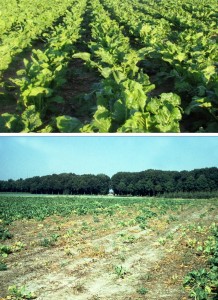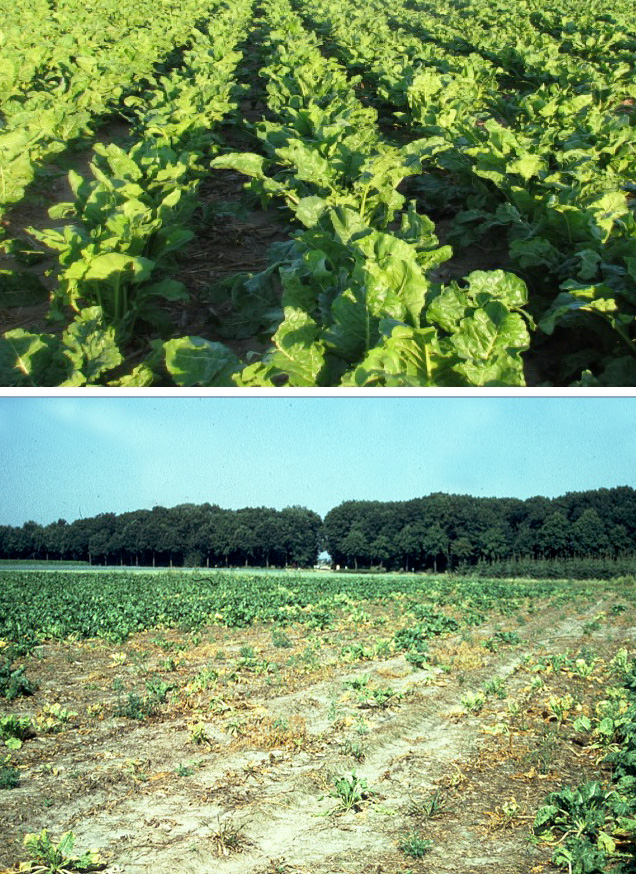
It may be that plants have an immune system that functions like that which animals have; it is just an external system, rather than an internal one.
Scientists from the U.S. Department of Energy’s Lawrence Berkeley National Laboratory (Berkeley Lab) and the Netherland’s Wageningen University have found that plants rely on a complex community of soil microbes to defend themselves against pathogens, much the way mammals harbor a raft of microbes to avoid infections. They discovered that it takes a whole community of soil microbes to protect plants from disease, not just one or two.
By consistently treating agricultural soil with herbicides, continually growing soil nutrient depleting crops, and flooding soil with chemical fertilizers we may be killing the microbe community that protects the food production we need.
In the first half of the 20th Century, Sir Albert Howard (author of The Soil and Health, first published in 1945 as Farming and Gardening for Health or Disease) argued then that industrial agriculture disrupts the delicate balance of nature and irrevocably robs the soil of its fertility. He taught that we must respect and restore the health of the soil for the benefit of future generations.
David Montgomery, author of Dirt: The Erosion of Civilizations, noted in his article Peak Soil, that:
Over the past century, the effects of long-term soil erosion were masked by bringing new land under cultivation and by developing fertilizers, pesticides and crop varieties to compensate for declining soil productivity. However, such “agrotech” fixes become progressively more difficult to maintain because crop yields decline exponentially as soil thins.
While fertilizers can temporarily offset the effects of soil erosion, the long-term productivity of the land cannot be maintained in the face of the reduced organic matter and thinning of soil that characterize industrial agriculture.
The organic philosophy of crop nutrition begins with proper care and nourishment of the organisms responsible for the soil microbes’ digestive process. Organic farmers believe this is best accomplished by avoiding toxic chemicals and practices – like excessive tillage – that are harmful to soil organisms, as well as by the addition of organic matter and natural rock minerals.
Conventional systems, in contrast, try to circumvent the digestive processes of the soil’s microbes and provide needed minerals to the plant directly, in a soluble form. (Organic Crop Production Overview)
Could it be that conventional agricultural systems are killing the community of microbes that act as our crops’ immune systems?

